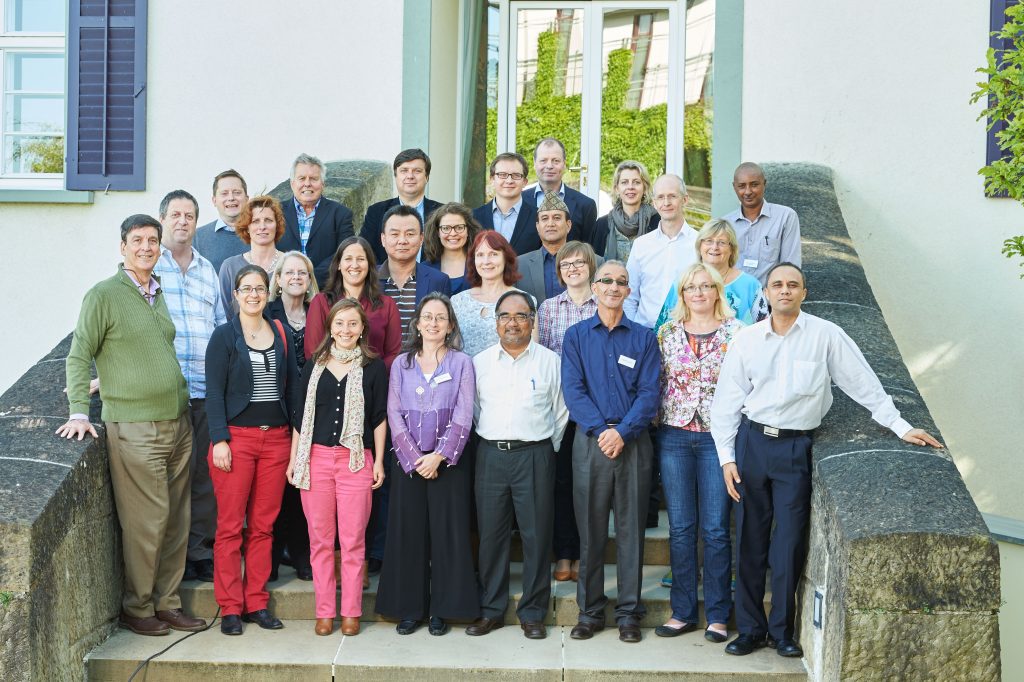On the 6th to 8th of May 2015, many of the current partners in the Children’s Worlds project met for a three-day seminar at Marbach Castle in Germany, hosted by the Jacobs Foundation. The event was an important milestone in the project, as it coincided with the launch of the first comparative report from the current wave of the survey.
The seminar began with opening addresses from Asher Ben-Arieh (the Haruv Institute, Israel) on behalf of the Children’s Worlds project and Simon Sommer, Head of Research at the Jacobs Foundation. This was followed by a presentation by Björn Halleröd (University of Gothenburg, Sweden), one of two academic experts outside the project group who joined the meeting to contribute external perspectives and critical analysis. Björn spoke about the potential and limitations for enhancing child well-being in low and middle income countries, based on his involvement in work on child poverty and the quality of government.
In most of the remainder of the first day, each of the 15 countries that have completed the second wave of the survey presented key national findings, highlighting particular points of interest. The day ended with an analysis by Ferran Casas (University of Girona, Spain) of the statistical validity of making international comparisons of children’s subjective well-being.
Day 2 began with a presentation by Gwyther Rees (University of York, UK) of the key findings from the international comparative report on the second wave of the survey, which was followed by a discussion of the potential and challenges of making international comparisons about children’s lives and well-being. In the afternoon, the second external expert, Jill Korbin (Case Western Reserve University, USA) spoke about mixed methods approaches in research on child well-being and some of the ways in which the Children’s Worlds project might develop along these lines in the future.
The remainder of Day 2 and the first part of Day 3 of the seminar were devoted to a series of presentations from researchers in the 15 countries which explored specific research topics making use of the Children’s Worlds data sets. The presentations covered a diverse range of topics – for example, ranging from the effects of parental migration for work on child well-being (Sergiu Baltatescu, University of Oradea, Romania) to a statistical decomposition analysis of children’s subjective well-being (Bong Joo Lee, Seoul National University, South Korea). The range of topics covered clearly demonstrated the huge potential offered by the data gathered through the project so far in exploring important issues about children’s lives and well-being around the world. The findings will be presented at ISCI’s fifth conference, which will be held on September 2-4 in Cape Town.
The seminar concluded with a discussion of next steps. There was considerable enthusiasm amongst the partners to continue to develop the project over the next few years.
The venue provided an ideal location and facilities to make the seminar a successful event. The Children’s Worlds team are very grateful to the Jacobs Foundation and its staff for hosting and facilitating the seminar.




